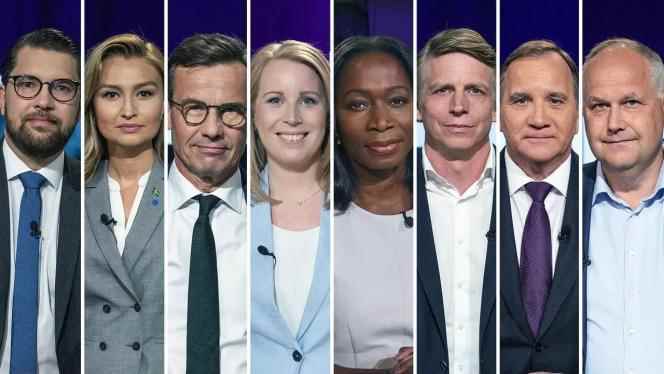LETTER FROM STOCKHOLM
Can too much debate kill debate? In France, Emmanuel Macron’s refusal to cross swords with his opponents before the first round of the presidential election had sparked criticism. Didn’t the outgoing president dare to defend his record or explain his program? Was he afraid of finding himself in the crosshairs of the other candidates? Or did he just want to appear above the fray? In his defence, no outgoing president has ever taken part in the exercise and only once, on April 4, 2017, the eleven candidates for the French presidential election found themselves on the same set to debate before the first round.
In Sweden, nothing to do. First, because the Nordic country is a monarchy and the head of state is a king, Carl XVI Gustaf, heir to Jean-Baptiste Bernadotte – who, it will be recalled, was French and Marshal of the Empire, before d to be crowned in 1818 in Stockholm. The Swedes therefore do not elect a president, but deputies, who are then responsible for designating the person who manages not to gather a majority of the votes in Parliament against his candidacy for the office of prime minister – a Swedish specificity.
Another major difference: before an election, the leaders of the political parties represented in the Riksdag, the Chamber of Deputies, will not have debated once, nor twice, but on around ten occasions.
This year, for example, a few weeks before the legislative elections of September 11, they were invited by the tabloid Expressenon August 16, then at its competitor, Aftonbladet, the next day: two debates broadcast on the newspapers’ websites. On September 2, they were reunited on public radio P1 – a session of which we will especially remember the falukorv, a Swedish red sausage, brandished by the leader of the Christian Democrats, Ebba Busch, to denounce the decline in the purchasing power of the less well-off. Thursday, September 8, finally, they will scrap on the set of the commercial channel TV4 before, the next day, as tradition dictates, to meet for a great final debate, broadcast by the public channel SVT, two days before the elections.
A consecration
And that’s not counting the three other televised debates, organized in the spring, before the launch of the campaign, and the countless variations, in the form of a duel, between the leaders of two formations, for example. Moreover, this kind of exercise is not reserved for party leaders. The municipal and regional elections taking place on the same day as the legislative elections, similar meetings are organized at the local level, between the candidates.
You have 57.58% of this article left to read. The following is for subscribers only.
